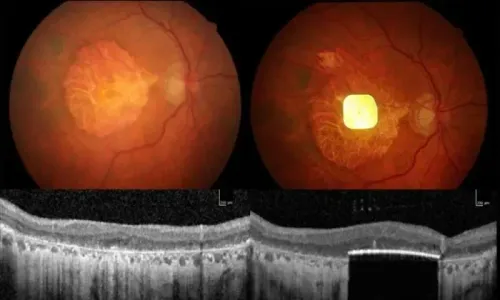Can a New Genetic Test Predict Obesity Risk by Age 5?

Synopsis
Key Takeaways
- New genetic test predicts obesity risk by age 5.
- Allows for early interventions in at-risk children.
- Developed by over 600 scientists using data from 5 million individuals.
- Twice as effective as previous tests.
- Limitations exist for certain ancestral backgrounds.
New Delhi, July 21 (NationPress) - In a remarkable advancement, a global team of researchers has developed a genetic assessment known as a polygenic risk score (PGS) that estimates the likelihood of obesity in early childhood. This test, which forecasts obesity risk by the age of five, could be crucial in identifying children and adolescents who are genetically predisposed to the condition. By doing so, it can facilitate the implementation of preventive measures, including lifestyle alterations, at an earlier age.
Lead author Roelof Smit, Assistant Professor at the NNF Center for Basic Metabolic Research (CBMR) at the University of Copenhagen, stated, "The remarkable aspect of this score is its capacity to predict obesity risk before the age of five, long before other risk factors begin to influence a child's weight in later childhood. Early intervention can lead to significant benefits."
Professor Ruth Loos from the university remarked, "This innovative polygenic score represents a significant enhancement in predictive capability and a major step toward clinically applicable genetic testing for obesity risk."
The World Obesity Federation anticipates that over half of the global population will experience overweight or obesity by 2035. Obesity is a recognized precursor to numerous conditions, including hypertension, diabetes, heart disease, and cancer.
The PGS test, developed by a collaboration of over 600 scientists from 500 institutions worldwide, utilized genetic data from more than five million individuals.
Functioning like a calculator, PGS aggregates the effects of various risk variants that an individual possesses to provide an overall score.
The research team discovered that their new PGS was twice as effective as the previous best test in forecasting a person's obesity risk.
Additionally, the scientists explored the correlation between an individual's genetic obesity risk and the efficacy of lifestyle weight loss strategies, such as diet and exercise.
They found that individuals with a higher genetic predisposition to obesity responded better to interventions but also tended to regain weight more rapidly once the interventions ceased.
However, the new PGS does have limitations. Although it draws on the genomes of a more diverse and globally representative population, it was significantly more effective at predicting obesity in individuals of European ancestry compared to those of African ancestry.









